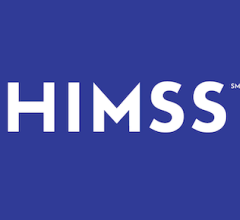
Getty Images
Robert Williams, the esteemed astronomer, took over as director of the Space Telescope Science Institute and the Hubble Telescope while it was in dire straits. It had been launched into orbit with a critical mirror, designed to capture images of the farther reaches of our universe, out of calibration. Early discussions surrounded whether it was feasible to fix the telescope or abandon it as an expensive mistake. The team decided to replace the mirrors over several space walks and ultimately saved the program. As director, Williams was afforded discretionary use of the telescope and decided to point the telescope to the farthest reaches of the galaxy where no light had been previously detected. The teams took photos that we now call the “Pillars of Creation.” These awe-inspiring photos gave us new information about our universe and its expansion.
Leveraging Data
We are living in the information age of healthcare. Data has never been more abundant and accessible than it is now. We are learning to engage our data in ways that are helping make us more aware of our environment, and ultimately assisting us in making better informed and evidence-based decisions. From business intelligence to clinical research to product development we are learning to leverage data as a critical component of how we perform and how we improve. The dashboards many of us have sitting in various portals provide real-time analytics. All of this is good for the work we do in delivering or supporting the delivery of healthcare. But perhaps there is more out there we have yet to discover.
A part of changing how we think about ourselves requires asking new questions and looking at new data. These data are often already available to us, we just need to find a way to discover and contextualize it. The number of systems we employ to deliver care are generating information that is waiting to be discovered and brought into view through the creative approach of asking new questions, or even asking the questions we already have of different sources of data. In some cases, those data may not exist in our current environment in which case we need to explore new sources of data. There are peripheral data sources related to healthcare that can inform important questions and help us achieve a better understanding of ourselves and how we perform.
An Operational Shift for Growth
When Robert Williams decided to focus on studying distant galaxies, he made a decision that was deemed somewhat controversial. He awarded his discretionary time to two competing teams to accelerate the effort in discovering new information about the expansion of the universe. The findings of the teams were so groundbreaking that the leaders of both teams were awarded the Nobel Prize in Physics for their work.
Expanding our understanding of the analytics and metrics we query and measure, we must also be prepared to expand or shift our operational model. Perhaps it includes inviting new people to participate in the development of key performance indicators or expanding the team of people who are querying that data you currently have available. Maybe it is time to invite someone from outside the organization to bring new ideas to the table to spur new threads of thought and conversation about where opportunities may lie and where the data to support these hypotheses exist.
We in healthcare tend to work in a linear fashion satisfied with incremental growth. It serves us well in maintaining a stable system of delivery of care. But as we continue to mature in leveraging analytics as a means to understand ourselves, we must be prepared to become true explorers. And not be afraid to see what exists out there at the edge of our own universe.

Jef Williams is managing partner for Paragon Consulting Partners LLC, a Sacramento, Calif., based healthcare IT consulting group.
Related Analytics Content:
Just Consider the Possibilities
Analytics: The Next Big Health IT Undertaking
Watch a video explaining how analytics can help improve workflows.
Watch the VIDEO “The Role of Analytics in Value-Based Healthcare.”


 February 17, 2026
February 17, 2026 









